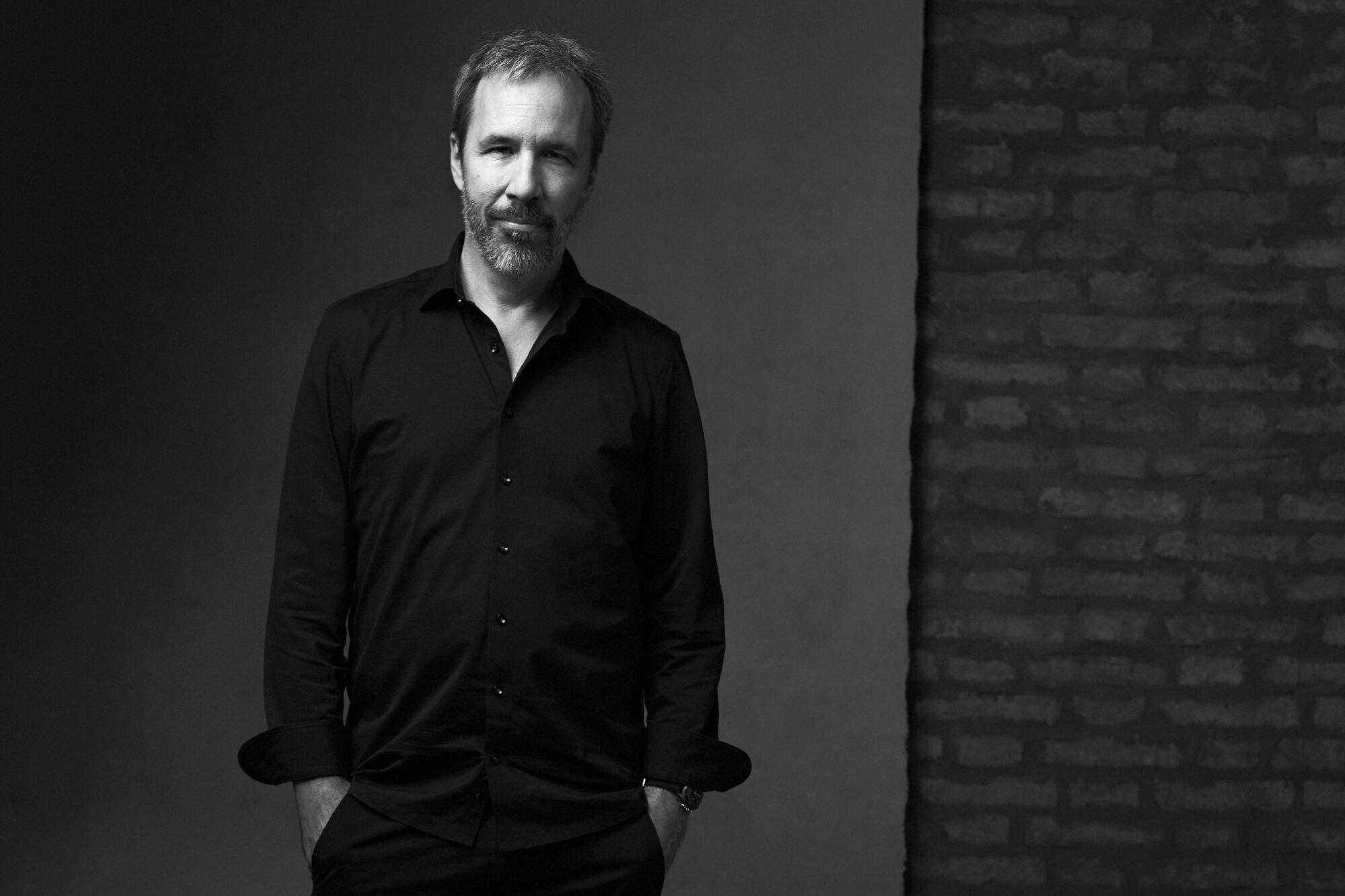
- Share via
“Dune”!
A novel as dangerous as the desert planet it’s named for: deep and strange. Shifting sands always ready to swallow the unwary.
Adapting a famous book is fraught with peril. “Dune” is one of the most-read novels in science fiction — with a worldwide fan base many millions strong. All those readers bring their own visions to the work. How do you honor them and still deliver surprises? How do you satisfy the devotees while still making a film that newcomers can wrap their heads around?
Of course, the density that makes “Dune” difficult is also what makes it wonderful. The novel is 700 pages of elaborate world-building, philosophical sparring and political intrigue. It offers up a galactic Imperium ruled by a jealous emperor. A secretive Spacing Guild that controls interstellar travel. Squabbling Great Houses — noble families that govern entire planets. And at the center of it all, the desert planet Arrakis, with its indomitable Fremen tribes and colossal sandworms. The sole source of the precious spice on which the entire Imperium depends.
You could spend the running time of a film explaining it all and never get to the story.
At the start, Denis decided that the only way to tackle “Dune” was by spreading it across two films. That made the project possible. But even the first half of the novel is a heavy lift — encompassing dozens of characters and multiple worlds. The danger of getting bogged down in exposition was all too clear.
It was Frank Herbert who showed us the way.
In their own words: Tony Kushner, Rebecca Hall, Jeymes Samuel and other screenwriters take us on a journey through writing their film scripts.
He did something unique in creating the universe of “Dune.” By giving the mysterious Spacing Guild a monopoly on interstellar flight, he relegated space travel to the background: “Dune” plants its characters’ feet firmly on the ground. By inventing shields that negate projectile weapons and lasers, he created a future in which personal, hand-to-hand combat is the prevailing form of war. By establishing a commandment against thinking machines, he did away with robots and artificial intelligence.
The result is a science fiction without flashy space battles, without blaster pistols, without droids or talking computers, without aliens. “Dune” imagines a future in which the greatest weapon is the human body, and the highest power is the human mind. It’s deeply human science fiction, and it concerns itself with human nature, human destiny and human failings.
It’s about people. Family and birthright. The struggle of individuals against institutions. The inertia of societies. The tide of history that even emperors can’t oppose.
At the heart of “Dune” is a family: the Duke Leto Atreides, his Lady Jessica and their son Paul.
The insight that guided us through the labyrinth of “Dune” was simple: If we could just make the audience feel the hopes and fears of the Atreides family… their fierce love for each other, their desperation to survive, to save each other… everything else would follow.
So we stick close to Paul Atreides as he comes of age, losing one world and gaining another. His viewpoint is our guiding light, illuminating only the parts of Herbert’s intricate universe we need to tell Paul’s story. We learn what he learns. We see what he sees.
And as for the rest of “Dune’s” gorgeous backdrop, we resort to a kind of poetic understatement, letting images do the world-building, and relying on the audience to pick up those cues without walls of text. In a universe where there is so much delicious lore to explain, we let mystery be.
Herbert’s de-emphasis of gadgets and technology helps “Dune” feel surprisingly modern, where a lot of its sci-fi contemporaries have come to feel dated. By focusing on the human, “Dune” digs into universal questions. At its best, the novel is legitimately profound. Its sharpest observations feel true.
Another reason “Dune” feels gritty and real is that it’s heavily researched: Frank Herbert did deep dives into desert ecology, the oil economy of the modern Middle East and the tribal conflicts of the Caucasus. The turmoil of his imaginary Imperium is rooted in the struggles of the real world.
And that explains the work we didn’t have to do: updating the themes of this 60-year-old novel.
No work was needed. The monsters that Frank Herbert wrestled with in the pages of “Dune” — the fragility of ecosystems; the dangers of mixing religion and politics; and the injustices of colonialism and resource extraction — are still very much at large in the world today, and bigger than they used to be.
The warnings of “Dune” are as relevant now as they ever were.
More to Read
From the Oscars to the Emmys.
Get the Envelope newsletter for exclusive awards season coverage, behind-the-scenes stories from the Envelope podcast and columnist Glenn Whipp’s must-read analysis.
You may occasionally receive promotional content from the Los Angeles Times.









